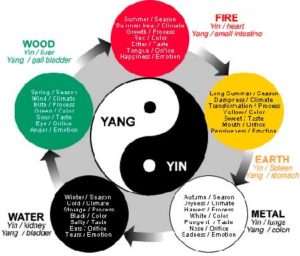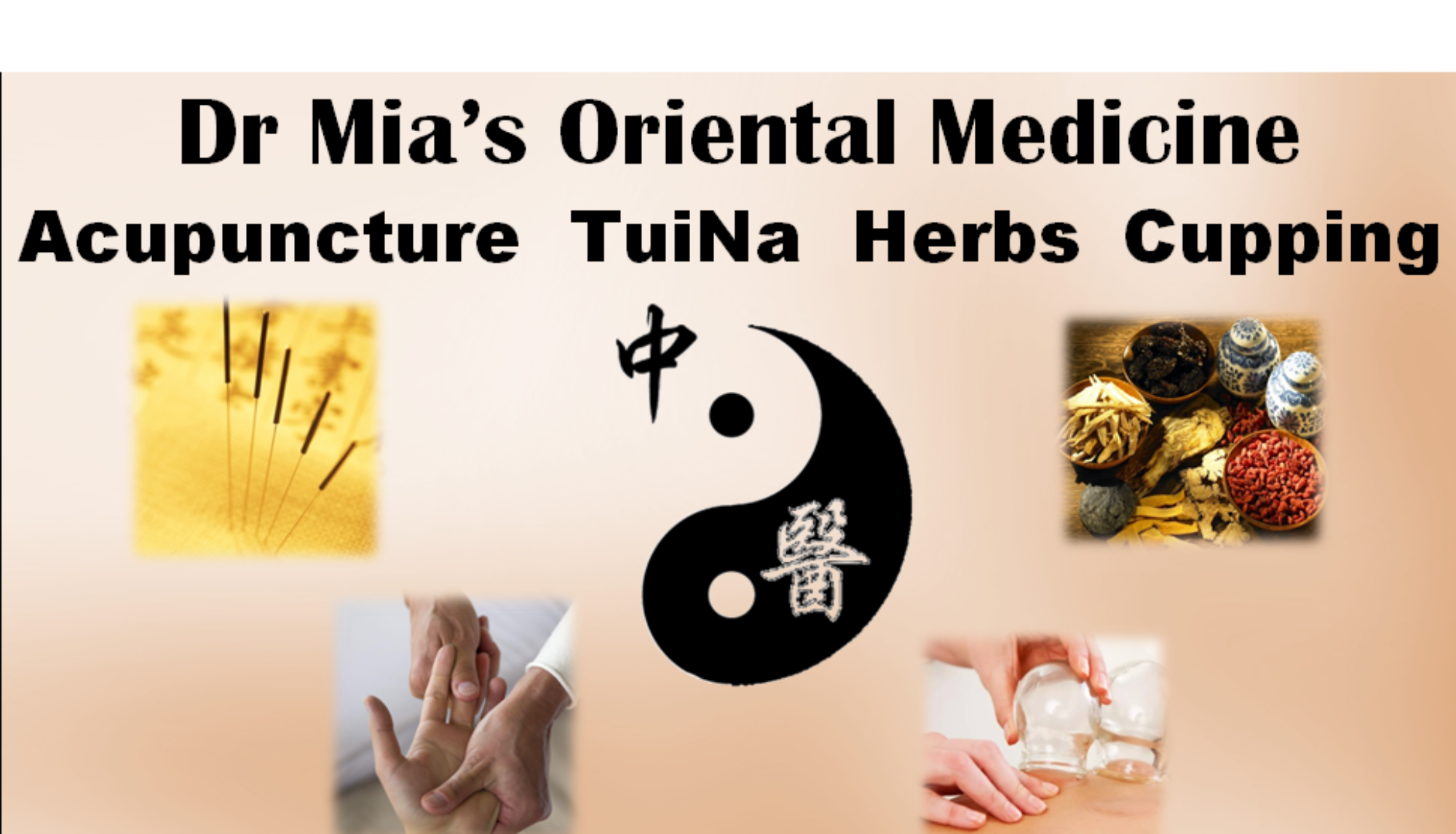Five Elements
Five Elements- “Wood, Fire, Earth, Metal and Water,” are the elements of the universe. Our human body is the micrify reflection of the universe. In our micrified universe, we have the Wood – The Liver and Gal Bladder meridian system, Fire – The Heart and Small Intestate and The Pericardium and Triple Burners meridians systems, Earth – The Splash and Stomach meridian systems, The Metal – The Lung and Large Intestine meridian system and the Water – The Kidney and Bladder meridian system. These elements – meridian systems effect and connect to each other in the universe and our body. Balancing and harmonizing the elements is the key to health, wellness and longevity.

The Fire Element in Traditional Chinese Medicine (TCM): Theory and Clinical Applications
In Five Element Theory (Wu Xing, 五行), Fire (火, Huǒ) is one of the fundamental phases governing physiological functions, emotional states, and disease patterns. Associated with summer, heat, and the heart, the Fire element plays a crucial role in TCM diagnostics and treatment strategies.
1. The Fire Element in TCM Theory
Key Associations of the Fire Element
- Organ Systems:
- Heart (心, Xīn) – Governs blood circulation, consciousness, and mental activity (“The Heart houses the Shen [Spirit]”).
- Pericardium (心包, Xīn Bāo) – Protects the Heart and influences emotional stability.
- Small Intestine (小肠, Xiǎo Cháng) – Separates the “clear” from the “turbid” in digestion and emotional discernment.
- Triple Burner (San Jiao, 三焦) – Regulates water metabolism and Qi flow across body regions.
- Emotions:
- Balanced Fire: Joy, warmth, sociability.
- Excess Fire: Mania, restlessness, insomnia.
- Deficient Fire: Depression, lack of enthusiasm.
- Season & Climate: Summer (peak Yang), heat.
- Color: Red.
- Taste: Bitter (in moderation, bitter foods like dandelion clear Fire excess).
- Sound: Laughing (excessive laughter may indicate Heart Fire).
2. Fire Imbalances and Clinical Manifestations
A. Excess Fire (实火, Shí Huǒ) – “Too Much Heat”
- Symptoms:
- Physical: Red face, thirst, mouth ulcers, palpitations, insomnia, dark urine, constipation.
- Emotional: Agitation, anxiety, excessive talking, manic behavior.
- Common Syndromes:
- Heart Fire Blazing (心火上炎, Xīn Huǒ Shàng Yán) – Insomnia, tongue ulcers, dream-disturbed sleep.
- Small Intestine Heat (小肠实热, Xiǎo Cháng Shí Rè) – Burning urination, thirst.
B. Deficient Fire (虚火, Xū Huǒ) – “Empty Heat”
- Caused by Yin deficiency (e.g., chronic stress, aging).
- Symptoms:
- Night sweats, low-grade fever, dry mouth (worse at night), heart palpitations, irritability.
- Common Syndrome:
- Heart Yin Deficiency (心阴虚, Xīn Yīn Xū) – Anxiety, poor sleep, easily startled.
3. TCM Treatments for Fire Imbalances
A. Herbal Medicine
- Clearing Excess Fire:
- Huang Lian (Coptis, 黄连) – Clears Heart Fire, used for mouth ulcers and palpitations.
- Zhu Ye (Bamboo Leaves, 竹叶) – Cools Heart Fire, treats insomnia and irritability.
- Dao Chi San (导赤散) – A classic formula for Heart and Small Intestine Fire (burning urination, tongue ulcers).
- Nourishing Deficient Fire (Heart Yin):
- Mai Dong (Ophiopogon, 麦冬) – Moistens Heart Yin, for dryness and palpitations.
- Tian Wang Bu Xin Dan (天王补心丹) – A key formula for Heart Yin deficiency with insomnia and anxiety.
B. Acupuncture Points for Fire Regulation
- HT7 (Shenmen, 神门) – Calms the Shen (Spirit), treats insomnia and emotional instability.
- PC8 (Laogong, 劳宫) – Clears Heart Fire, reduces agitation and mouth sores.
- SI2 (Qiangu, 前谷) – Drains Small Intestine Fire, helps with burning urination.
C. Dietary & Lifestyle Adjustments
- Avoid: Spicy foods, alcohol, excessive stimulants (coffee, hot spices).
- Consume: Cooling foods (cucumber, watermelon, mung beans), bitter greens (dandelion, chrysanthemum tea).
- Mind-Body Practices: Meditation, Qi Gong (to calm Shen and stabilize Heart Qi).
4. Fire Element in Preventive and Emotional Health
- Preventing Fire Imbalance:
- Balance activity with rest, especially in summer (peak Fire season).
- Cultivate emotional equilibrium—excessive joy (overstimulation) or repressed joy (lack of warmth) can disrupt Heart Fire.
- Shen (Spirit) Disorders:
- Severe Fire excess may manifest as mania (狂, Kuáng).
- Fire deficiency may lead to depression (郁, Yù).
Conclusion
The Fire element in TCM governs vitality, emotional warmth, and circulatory health. Its balance is essential for mental clarity, stable emotions, and proper digestion. Treatments focus on clearing excess heat, nourishing Yin, and stabilizing the Shen through herbs, acupuncture, and lifestyle modifications.

